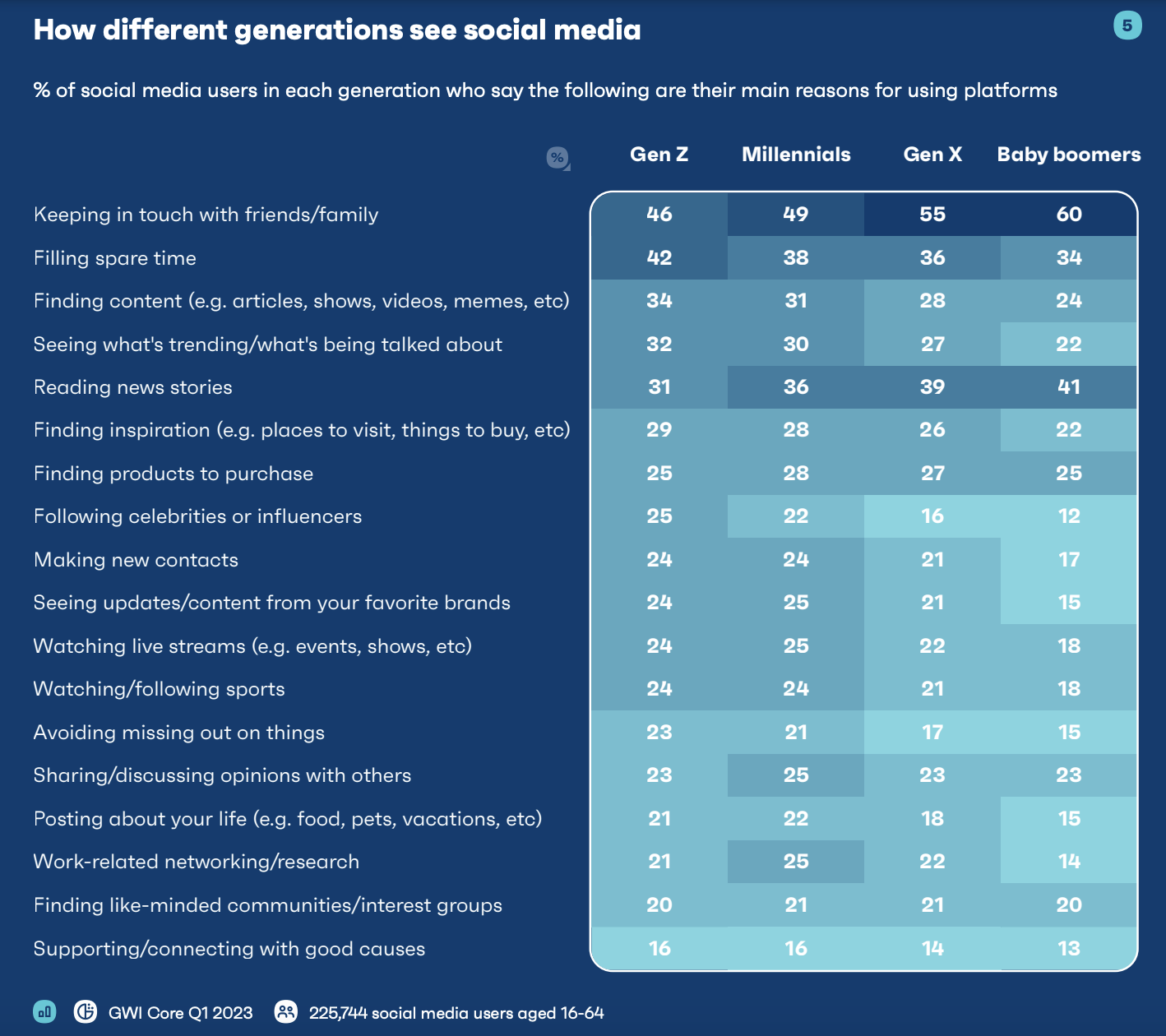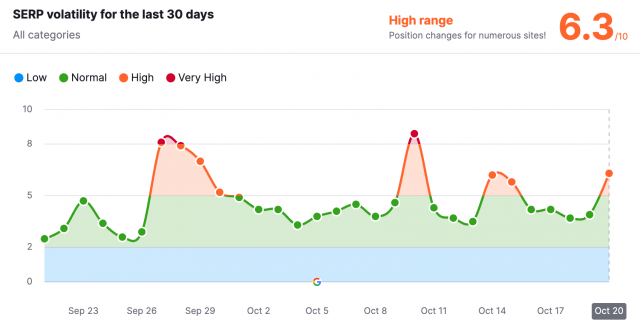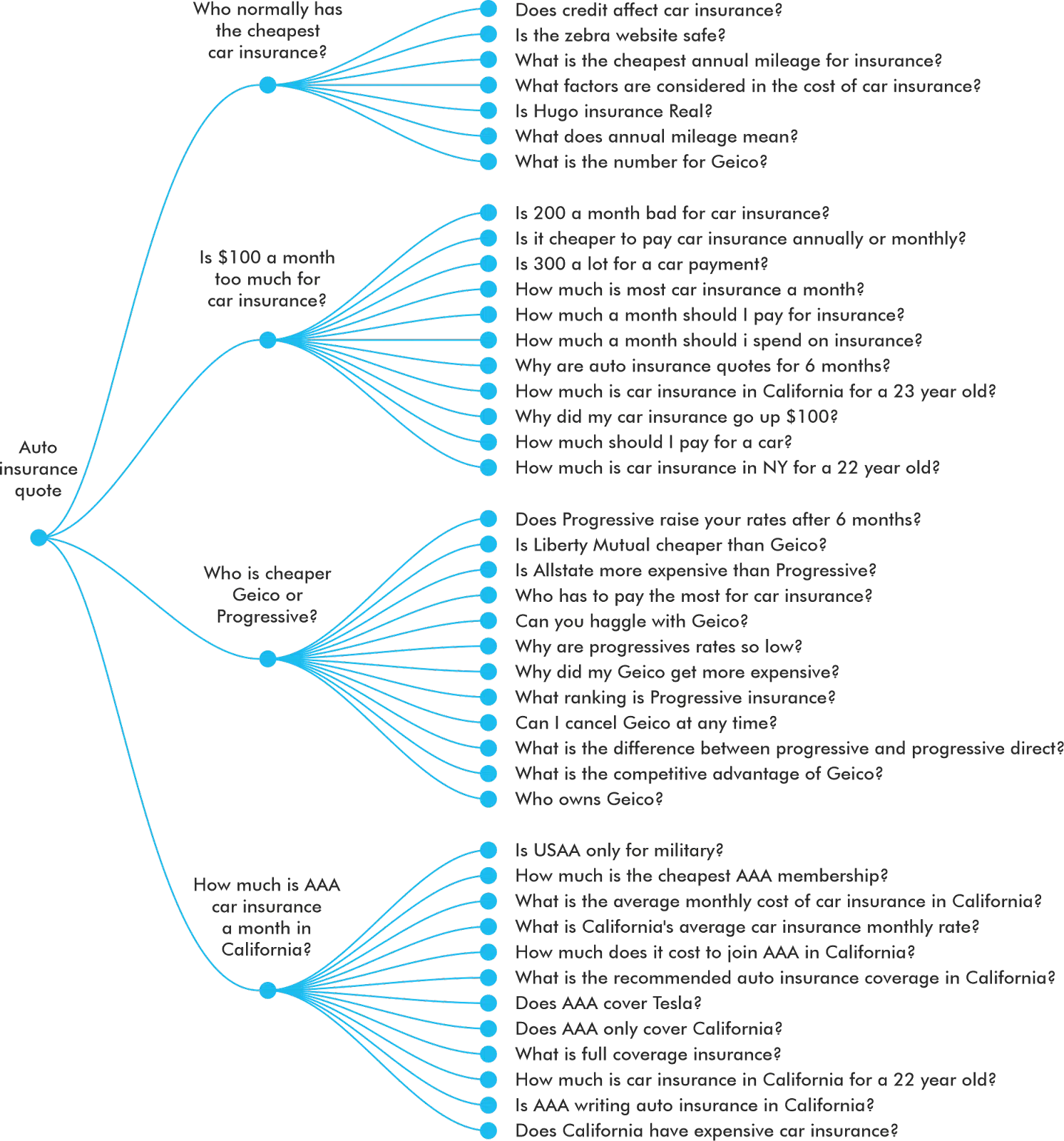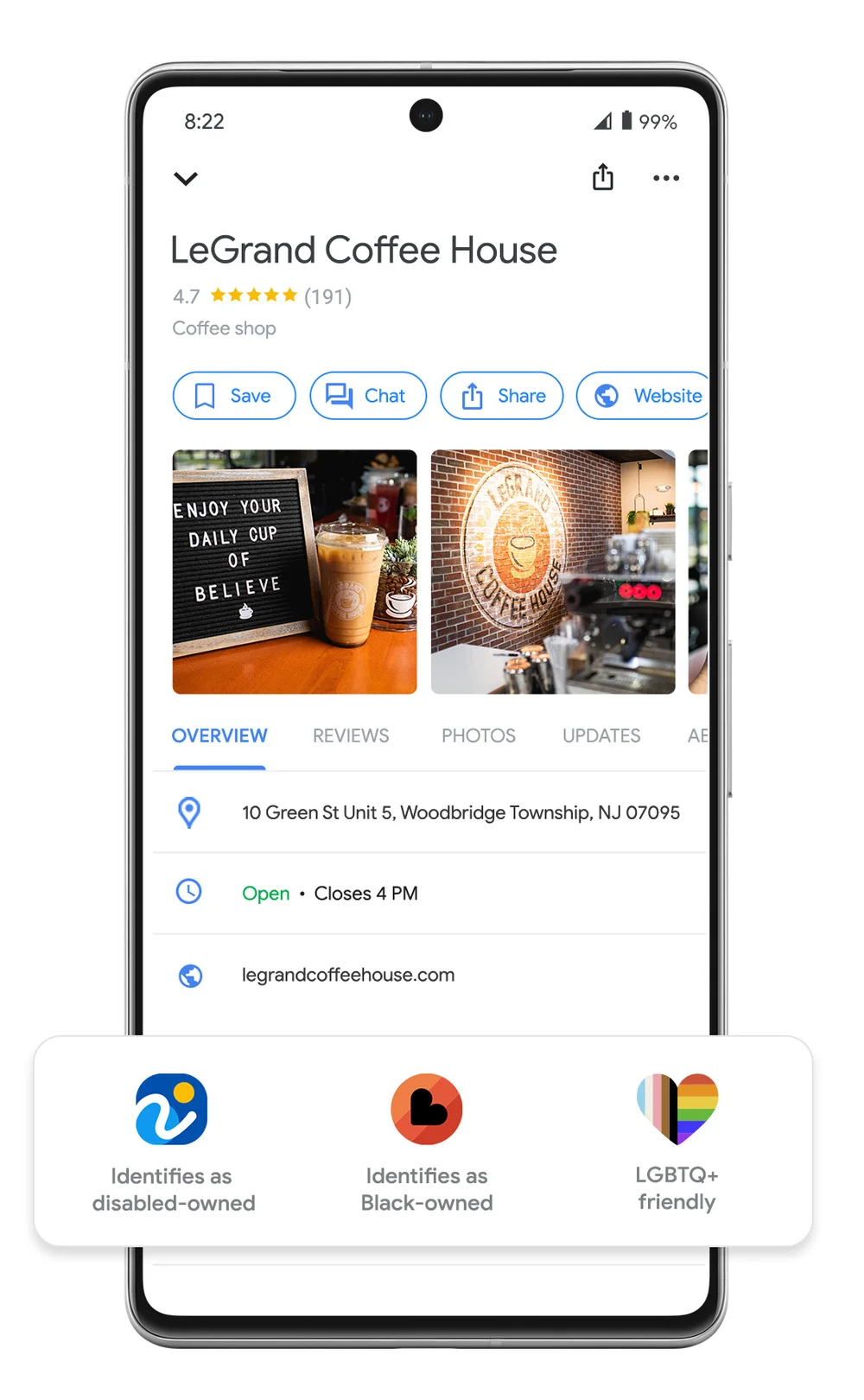Local Memo: Global Social Media Usage Hits Plateau

Local Memo: Global Social Media Usage Hits Plateau
In this week’s update, learn about the global plateau in social media usage; the completion of Google’s two October updates; how generative AI is changing SEO; new identity attributes in GBP; and Google’s new support for structured vehicle listing data.
Global Social Media Usage Hits Plateau
A report from GWI finds that time spent per day on social media has declined in 2023 compared to the previous year in 36 of 48 global markets, only the second year-over-year decline since the company began tracking this stat in 2012. The company speculates that daily usage may have hit a ceiling globally, though it’s important to note that North America does not (yet?) exhibit the same trend seen elsewhere. Perhaps helping to explain the trend, 33% of Gen Z users, who are on social media more than any other age group, reported that they were trying to limit their usage, up from last year. Still, video consumption is up on most platforms.
In terms of overall popularity, Facebook is the top social media platform when it comes to usage, though when asked to pick their favorite app, more people globally chose WhatsApp. Instagram, Messenger, X, and TikTok round out the top rankings.
Some 57% of people reported that they discover brands through social media, and 78% say they use social media to look up information about brands. Among users of specific platforms, 58% of Instagram users, 36% of X users, and 26% of TikTok users said they use the platform to follow or find information about products and brands.

Courtesy GWI
October Core and Spam Updates Fully Rolled Out
Google finished rolling out the October Spam Update on October 19 and the October Core Update on October 20, the completion of a two-week cycle in both cases. According to Barry Schwartz’s writeup, the October Core Update was a significant one and impacted several websites negatively. Schwartz also reached out to Google’s Search Liaison account on X to ask why the two updates were released in an overlapping fashion, and was told that the company usually tries to avoid this but “it’s not always possible.” The response went on to say that it should be easy to tell which update impacted a particular website, since the Spam Update was targeted only to those sites engaging in specific spam practices.

Courtesy Semrush / Search Engine Roundtable
How Generative AI Is Changing SEO
A lengthy post from Michael King on Search Engine Land suggests that search has already been changed “irrevocably” by the advent of generative AI. King cites the development resources Google is pouring into Search Generative Experience (SGE) as evidence, as well as Google CEO Sundar Pichai’s recent statements suggesting that Google is testing heavily whether it can maintain its ad-based business model in an SGE world.
King makes a few predictions. Search queries will get longer, he thinks, as users acclimate to being able to get specific answers to exact questions. Click-through rates for the links below SGE results will decline, even for sites ranked first. Rank tracking may become more complex and expensive. Users will traverse very narrow journeys in a search experience that will become like a Choose Your Own Adventure book (see diagram), and sites will have to try to optimize for a broad array of search contexts.
The post also presents some research based on 91,000 SGE query results, finding that SGE has improved on the speed of responses since launch. Broadly categorized, 51% of SGE’s snapshots are informational, 31% are local, and about 17% contain shopping results.

Hyper-relevant search journeys with AI, courtesy Search Engine Land
New Identity Attributes in GBP
Google has added “disabled-owned” and “Indigenous-owned” to the list of identity attributes in Google Business Profiles. The two additions join a list that has been growing over the last few years and also includes “Asian-owned,” “Black-owned,” “Latino-owned,” “LGBTQ+-owned,” “veteran-owned,” and “women-owned.” Google’s announcement only mentions the “disabled-owned” attribute but does show how that attribute is shown graphically in search alongside others. As with other identity attributes, it’s expected that qualifying businesses who utilize it will see a boost in rankings for search keywords that include that ownership characteristic.
Google has also added screen reader functionality to the Lens feature in the Google Maps app, where users can enable a live view of their surroundings and see overlays of Maps information showcasing points of interest. For those with visual impairments, the screen reader will now recite relevant listings info aloud. Several other accessibility updates in Google services are mentioned in the announcement.

Courtesy Google
Google Will Now Support Vehicle Listing Markup
Google is launching a new method for vehicle dealers to digitize their inventories, augmenting the existing feed upload method. Now, dealers can utilize vehicle listing markup, defined as a standard at Schema.org, to mark up the vehicle listings on websites so that they can be ingested and displayed in Google results. The company suggests the structured data option is suitable for dealers who are not uploading inventory feeds or who prefer a simpler method. The rich result report in Search Console will also now help users diagnose issues with structured vehicle data.




